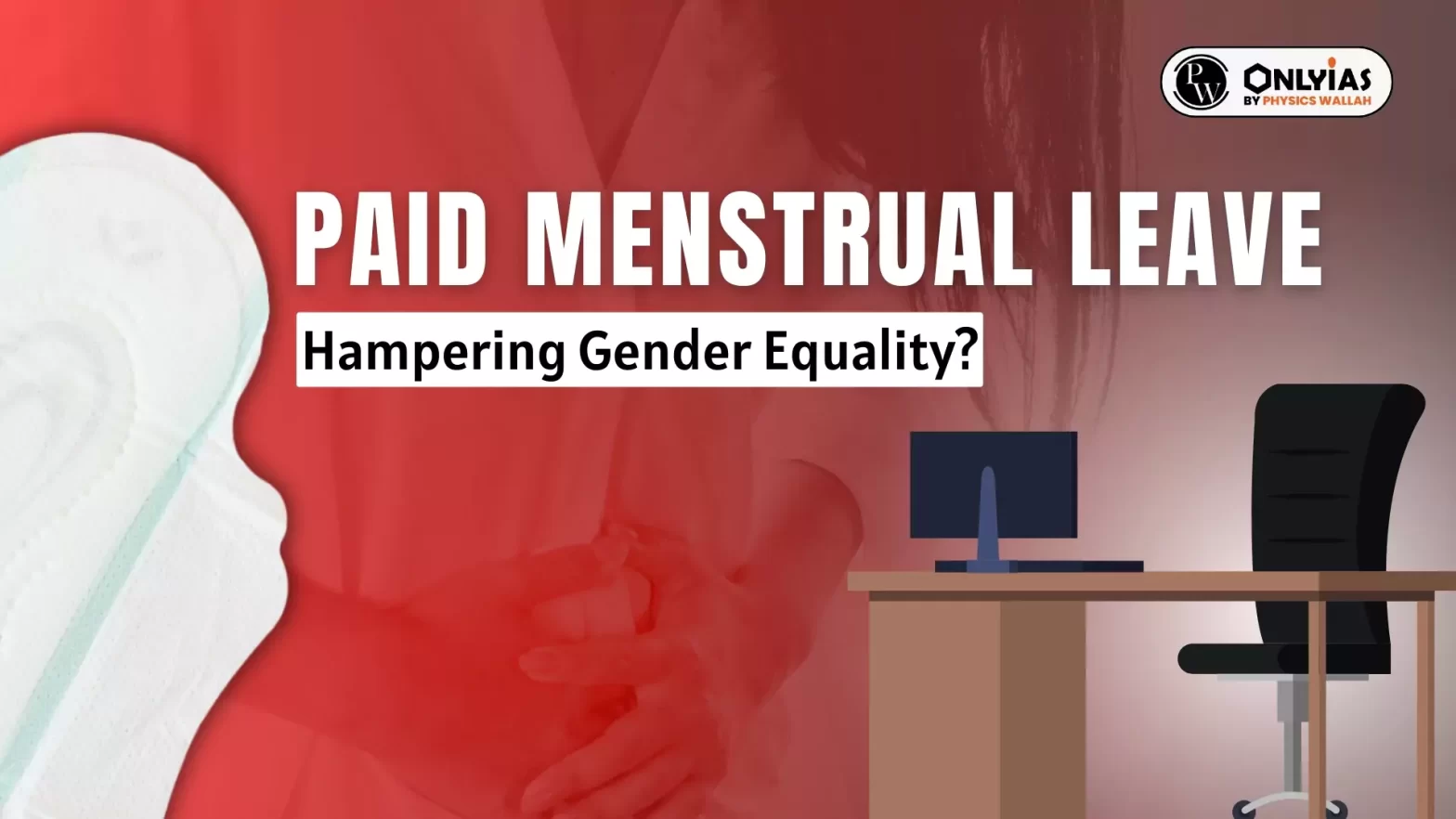![]() 15 Feb 2024
15 Feb 2024

This editorial is based on the news “A demand that could hamper gender equality” which was published in the Hindu. This article raises challenges that women would face in providing paid menstrual leave. It highlights that such a mandate would negatively impact the long battle of women for gender equality and societal taboos of menstruation.
| Relevancy for Prelims: Women, Gender Equality, Menstrual Hygiene In India, and Menstrual Health.
Relevancy for Mains: Paid Menstrual Leave- Need, Challenges and Way Forward. |
|---|
| Mains Question: Analyze menstrual health as a public health issue in India by assessing the significance of menstrual hygiene for women’s health and the key challenges faced. (250 words, 15 Marks) |
|---|
| Must Read | |
| NCERT Notes For UPSC | UPSC Daily Current Affairs |
| UPSC Blogs | UPSC Daily Editorials |
| Daily Current Affairs Quiz | Daily Main Answer Writing |
| UPSC Mains Previous Year Papers | UPSC Test Series 2024 |

<div class="new-fform">
</div>